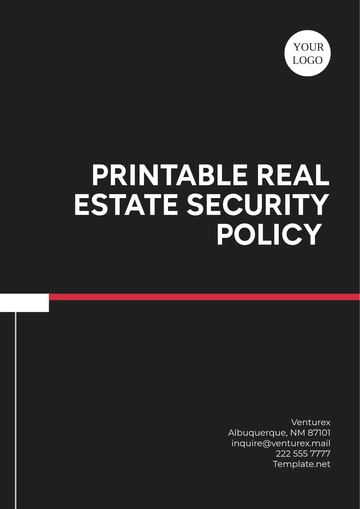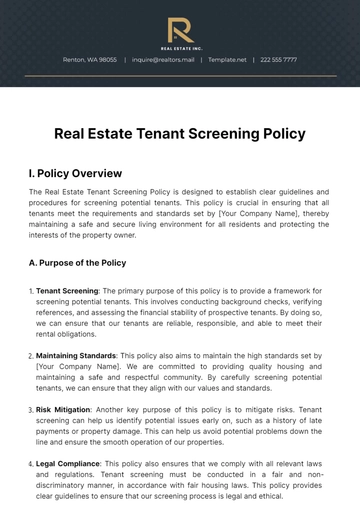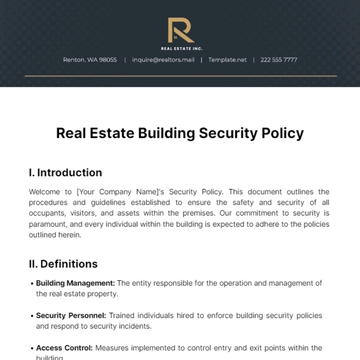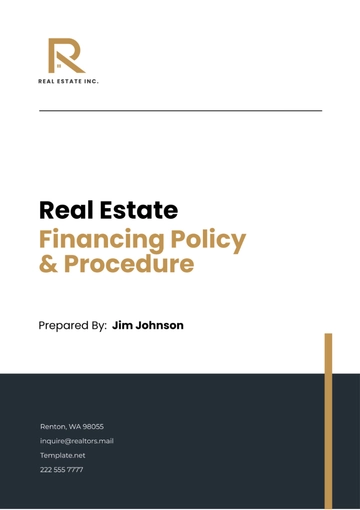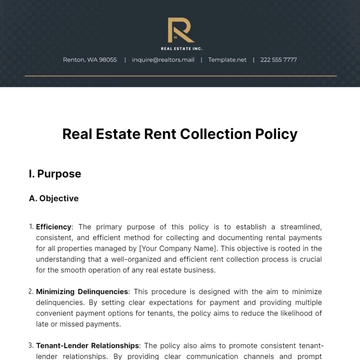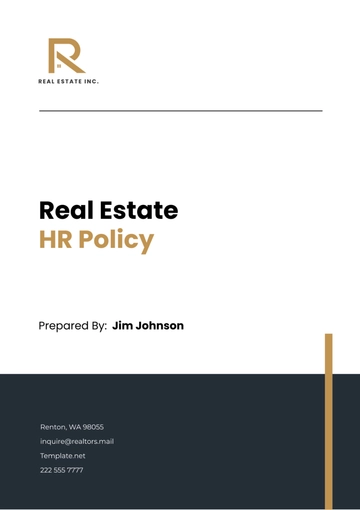Free Real Estate Building Security Policy
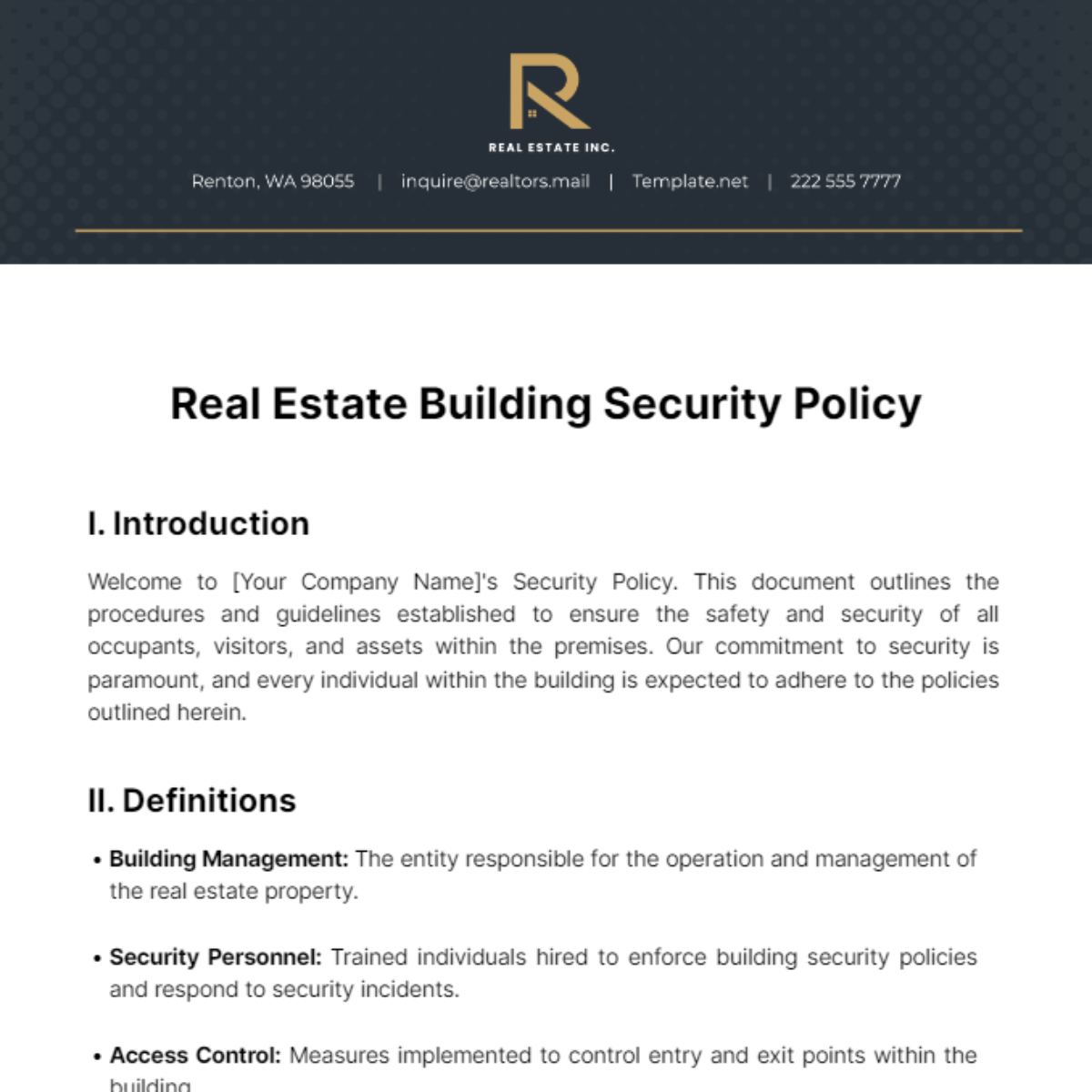
I. Introduction
Welcome to [Your Company Name]'s Security Policy. This document outlines the procedures and guidelines established to ensure the safety and security of all occupants, visitors, and assets within the premises. Our commitment to security is paramount, and every individual within the building is expected to adhere to the policies outlined herein.
II. Definitions
Building Management: The entity responsible for the operation and management of the real estate property.
Security Personnel: Trained individuals hired to enforce building security policies and respond to security incidents.
Access Control: Measures implemented to control entry and exit points within the building.
Surveillance: Monitoring of activities within the building and surrounding areas through the use of security cameras and other monitoring systems.
III. Governance and Responsibilities
Building Management is responsible for overseeing the implementation and enforcement of security policies. The Security Manager serves as the primary point of contact for security-related matters and collaborates with relevant stakeholders to ensure compliance with security protocols.
IV. Access Control
Access to the building is restricted to authorized personnel only. All occupants and visitors must obtain a building access card from Building Management. Access cards are programmed to grant specific levels of access based on individual roles and responsibilities.
V. Surveillance and Monitoring
Security cameras are strategically positioned throughout the building and surrounding areas to monitor activities. Surveillance footage is stored securely and accessed only by authorized personnel for investigative or security purposes.
VI. Alarm Systems
The building is equipped with alarm systems for intrusion detection, fire detection, and other emergencies. Upon activation of an alarm, occupants must follow evacuation procedures as outlined in the Emergency Response Plan.
VII. Security Personnel
Trained security personnel are stationed at key locations within the building to monitor activities, conduct patrols, and respond to security incidents. Security guards are equipped with communication devices to coordinate with Building Management and emergency response agencies.
VIII. Physical Security Measures
Physical security measures, such as fencing, barriers, lighting, and locks, are implemented to prevent unauthorized access to the building and enhance overall security.
IX. Information Security
Sensitive information, including tenant records and financial data, is stored securely and accessed only by authorized personnel. Data encryption and access controls are employed to safeguard against unauthorized access or disclosure.
X. Emergency Response and Preparedness
In the event of an emergency, occupants must follow the evacuation procedures outlined in the Emergency Response Plan. Building Management works closely with local emergency response agencies to coordinate emergency response efforts.
XI. Training and Awareness
All occupants receive training on building security policies, procedures, and emergency response protocols upon initial occupancy and through periodic refresher courses. Building Management conducts regular security drills and exercises to test emergency response readiness.
XII. Incident Reporting and Investigation
Security incidents must be reported immediately to Building Management. An investigation will be conducted to determine the cause of the incident and implement corrective actions to prevent recurrence.
XIII. Compliance and Legal Considerations
This Security Policy is developed in compliance with relevant laws, regulations, and industry standards related to building security. Building Management works diligently to ensure adherence to all applicable legal requirements.
XIV. Review and Revision
This Security Policy is subject to periodic review and revision to ensure its effectiveness and relevance. Building Management welcomes feedback from occupants and stakeholders to continuously improve building security measures.
XV. Enforcement and Consequences
Failure to adhere to the protocols pertaining to building security could lead to the instigation of disciplinary measures. These measures might include the suspension of privileges, such as being able to gain access to the building. In instances where the non-compliance is of a severe nature, these consequences could extend into the legal realm, with potential legal repercussions being a possibility.
- 100% Customizable, free editor
- Access 1 Million+ Templates, photo’s & graphics
- Download or share as a template
- Click and replace photos, graphics, text, backgrounds
- Resize, crop, AI write & more
- Access advanced editor
Discover peace of mind with our Real Estate Building Security Policy Template, available exclusively on Template.net. This comprehensive document is fully editable and customizable to suit your specific needs. With our intuitive AI Editor Tool, crafting a robust security policy has never been easier. Safeguard your property, occupants, and assets with confidence today.
You may also like
- HR Policy
- Restaurant Policy
- Company Policy
- Accounting Policies and Procedures
- Website Policy
- Privacy Policy
- Safety Policy
- School Policy
- IT and Software Policy
- Law Firm Policy
- Construction Policy
- Interior Design Policy
- Travel Agency Policy
- Education Academic Policy
- Security Policy
- Real Estate Policy
- Expense Policy
- Software Policy
